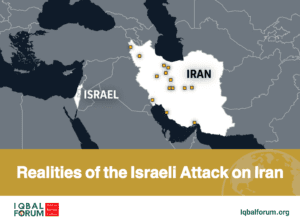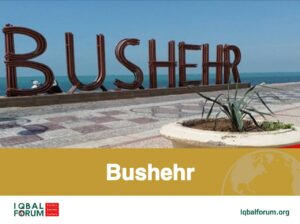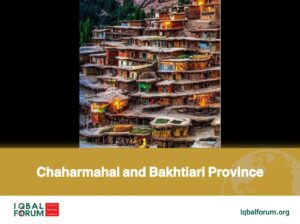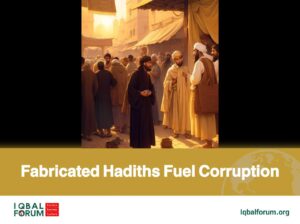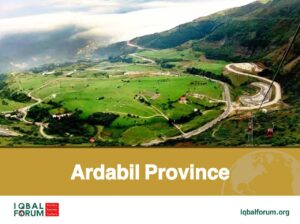Election challenges amid public despair
Even though the Election Commission of Pakistan has yet to announce a date for general elections, it has taken an important step toward it. Last week it announced a preliminary delimitation of constituencies that it was obliged to do to reflect the 2023 national digital census. The whole delimitation process is expected to be completed by the end of November. In view of this, ECP has said elections will be held in the last week of January.
There is widespread public sentiment for the elections not to be delayed any further than that and for a government with a mandate to emerge from this so that it can get on with the job of governance. Of course, people expect their vote to be respected in free and fair polls. The most important question then is how credible the polls will be especially in view of controversial statements made by caretaker Prime Minister Anwaar ul Haq Kakar that elections will be fair even without PTI leader Imran Khan and his jailed party members. Statements by other cabinet ministers have also raised questions about the inclusiveness of elections.
Public disquiet with the prolonged political uncertainty is palpable. A national public opinion survey conducted by Gallup-Pakistan has laid bare that a large majority of people feel the country is going in the wrong direction. Seventy-seven percent of people expressed dissatisfaction with the way things are going. A key reason is the dire state of the economy and the cost-of-living crisis that is compounding the economic plight of people. Almost 70 percent of respondents in the survey described the economic situation as bad or very bad. Not surprisingly, 89 percent saw inflation as the country’s biggest problem. The public pessimism found in this survey, carried out in June-July 2023, reflects a longer-term trend. Previous surveys also recorded the sense of public despondency. Polling by other organizations had similar findings. The Gallup-Pakistan poll also found opinion was divided on whether or not democracy was delivering. Fifty percent of respondents felt democracy was delivering while almost 48 percent said it wasn’t.
A key factor in the upcoming elections will be the youth vote.
– Maleeha Lodhi
Other than the country’s worsening economic conditions, the security situation has also deteriorated markedly in recent months, adding to public despair about the future. According to the Islamabad-based Think Tank, Center for Research and Security Studies, 386 security personnel were killed in militant attacks in the first nine months of 2023, which marks an eight-year high. The year has so far seen over a thousand “violence-related fatalities” with most of the terrorist attacks taking place in Khyber Pakhtunkhwa and Balochistan. These two provinces have witnessed “a consistent and alarming surge in violence” in the past five years, says the CRSS security report.
Against this backdrop the survey by Gallup-Pakistan made a number of other noteworthy revelations about the approval ratings for political leaders and people’s voting intentions. This seems to confirm the anecdotal evidence in this regard. PTI continues to be the most popular party with the highest ‘likeability rating’ at 59 percent, way ahead of PML-N at 38 percent. In the approval ratings of leaders, Imran Khan retains a substantial lead at 60 percent, in line with previous polls, with Nawaz Sharif at 36 percent. In terms of voting intentions PTI leads in all provinces, with the strongest showing in KP, but in a tie with PPP in Sindh. These trends and poll findings are not surprising but whether they will hold in an election still months away is an open question. As it has famously been said, even a week is a long time in politics.
How the return of former prime minister Nawaz Sharif from abroad will impact politics and electoral dynamics is also unclear. He is expected to arrive back on October 21 after four years in exile. PML-N leaders hope this will significantly boost the party’s popular appeal and reverse its declining popularity in Punjab, the battleground province in the general elections. Hectic preparations are being made by the party to orchestrate public enthusiasm to welcome its supremo. His return will kick off election activity in the country, which has yet to get underway.
A key factor in the upcoming elections will be the youth vote. The latest figures released by the Election Commission of Pakistan show that voters between the ages of 18 to 35 make up 45 percent of the electorate – 57,095,197 out of 126,980,272. This reflects the country’s youthful demographics and makes young voters a significant factor in determining the electoral outcome. ECP statistics also show that since the last election in 2018, over 21 million new voters have been added to the electoral rolls. How they vote will also be consequential to the outcome.
All these factors add up to an uncertain outlook for the elections. What cannot be disputed is the need for elections to be held on schedule once ECP completes its delimitation task and for the polls to be free, fair and inclusive.
– Maleeha Lodhi is a former Pakistani ambassador to the US, UK & UN.



